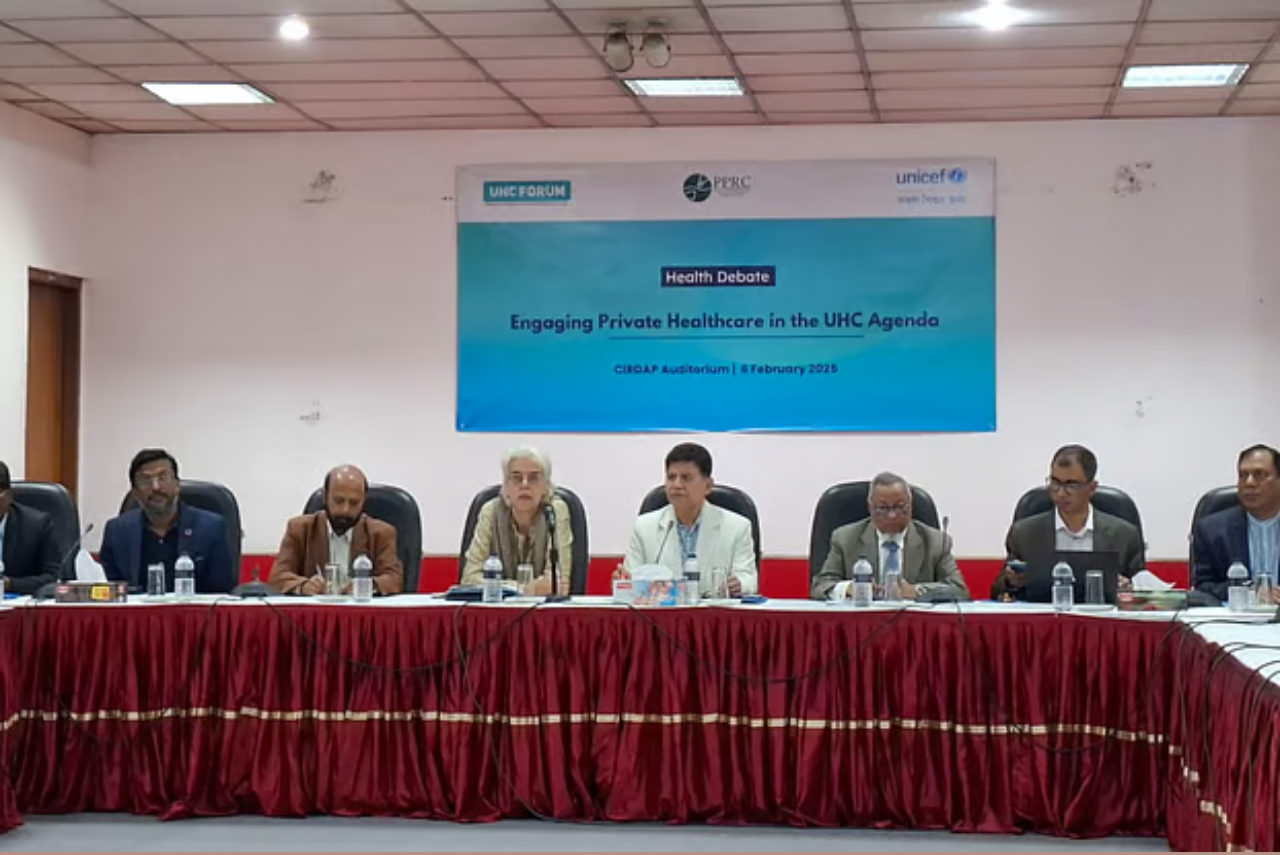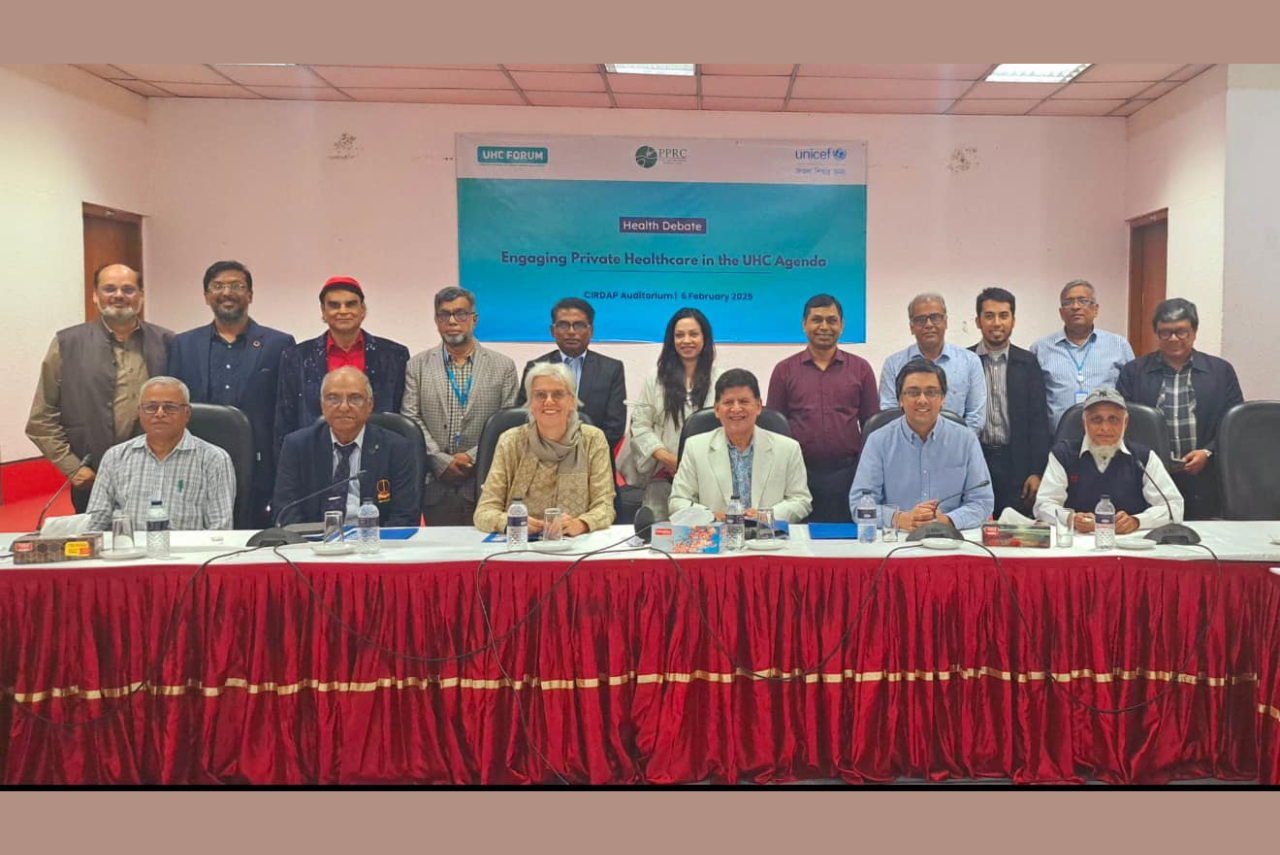
Prof. Mamun Joins Health Debate on Private Sector’s Role in Achieving Universal Health Coverage in Bangladesh
On February 6, 2025, the Power and Participation Research Centre (PPRC), in partnership with the UHC Forum and supported by UNICEF Bangladesh, organized a critical health policy dialogue titled “Engaging Private Healthcare in the Universal Health Coverage (UHC) Agenda in Bangladesh” at the CIRDAP Auditorium in Dhaka. The event brought together a wide range of stakeholders from government, private healthcare providers, research institutions, NGOs, and international organizations to reflect on the evolving role of the private sector in Bangladesh’s healthcare ecosystem.
Prof. Khondaker Abdullah Al Mamun, Founder of CMED Health and Professor at United International University, was among the prominent voices contributing to the discussion. Drawing from his experience in AI-powered digital health innovations, Prof. Mamun emphasized the importance of innovative digital healthcare solutions and reiterated that healthcare is fundamentally about management. He stressed that to scale primary care coverage and improve service delivery, the country must prioritize data-driven accountability, efficient system design, and strategic expansion through technology.
Moderated by PPRC Chairman and UHC Forum Convener Hossain Zillur Rahman, the session saw strong consensus on several points. While the government remains central to primary healthcare provision, private hospitals tend to stay away from it due to limited profitability. The debate highlighted that to meaningfully advance UHC, public-private collaboration must be structured and incentivized, especially in the area of primary care.

Speakers underlined that “private healthcare” in Bangladesh includes not only for-profit entities but also NGO providers, social businesses, and informal health workers, underscoring the diversity of the sector. However, significant gaps remain in quality accreditation, data sharing, regulation, and ethical practices. Discussants pointed out the need for a universal regulatory authority or health security office to standardize pricing, ensure quality control, and introduce a grievance redress system for patients.
Participants also raised concerns about the financial strain of out-of-pocket expenses, often driven by both necessity and unethical commercial practices. The conversation pointed to a fundamental tension between high public expectations and limited healthcare funding, calling for reforms that balance service quality, affordability, and sustainability.
In addition to Prof. Mamun, key participants included Prof Liaquat Ali (Health Reform Commission), Dr A.M. Shamim (Labaid), Dr Lutfor Rahman (Grameen Telecom Trust), Dr Shaila Purvin (Surjer Hashi Network), Dr Abul Kalam Azad (Former DG-Health), Dr Iqbal Anwar (ICDDR,B), and representatives from DGHS, ICDDR,B, MSF, IHE-DU, PHF, Saaol Heart Centre, and Sensiv Diagnostics Lab, among others.
The session concluded with a powerful message from Hossain Zillur Rahman, who urged participants to move beyond blame-game narratives and instead focus on practical frameworks that engage all sectors of the health system, particularly in response to the reform momentum triggered by the July–August 2024 civic movement. He also mentioned that the key insights from the debate would be shared with the Health Reform Commission as part of broader national health policy discourse.
The event reaffirmed that with the right blend of policy alignment, technological integration, and collaborative governance, Bangladesh can take meaningful strides toward achieving Universal Health Coverage.

